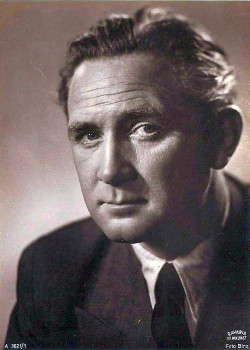
"Der Tod und das Mädchen", D 531; Op. 7, No. 3, is a lied composed by Franz Schubert in February 1817. It was published by Cappi und Diabelli in Vienna in November 1821. The text is derived from a poem written by German poet Matthias Claudius. The song is set for voice and piano.
Erwin C. Dietrich was a Swiss film director, producer and actor, often regarded as one of the most influential cinematographers in Switzerland.

Walter Kollo was a German composer of operettas, Possen mit Gesang, and Singspiele as well as popular songs. He was also a conductor and a music publisher.

Hubertus Knabe is a German historian and was the scientific director of the Berlin-Hohenschönhausen Memorial, a museum and memorial in a notorious former Stasi torture prison in Berlin. Knabe is noted for several works on oppression in the former Communist states of Eastern Europe, particularly in East Germany. He became involved with green politics, and was active in the Alliance '90/The Greens.

Wilhelm Knabe was a German ecologist, pacifist, civil servant and politician, remembered as a founding member of the Green Party in Germany, and a pioneer of conservation of the environment who shaped the party for decades.

Gustav Knuth was a German film actor. He appeared in more than 120 films between 1935 and 1982 and starred in the TV series Alle meine Tiere. He was married to the actress Elisabeth Lennartz.

The Theater in der Leopoldstadt was an opera house in the Leopoldstadt district of Vienna, founded in 1781 by Karl von Marinelli, following the Schauspielfreiheit by Joseph II in 1776. The 19th-century summer stage called the Thaliatheater was also managed by the Leopoldstadt.
![<i>Liane, Jungle Goddess</i> 1956 [[West Germany]] film](https://upload.wikimedia.org/wikipedia/en/thumb/4/4e/Liane%2C_Jungle_Goddess_FilmPoster.jpeg/320px-Liane%2C_Jungle_Goddess_FilmPoster.jpeg)
Liane, Jungle Goddess is a 1956 West German film directed by Eduard von Borsody. It was based on the 1956 novel Liane, das Mädchen aus dem Urwald by Anne Day-Helveg. The film attracted considerable attention due to Marion Michael appearing topless.
Diana Amft is a German film and television actress and children's writer. She is best known for playing Gretchen Haase in the RTL sitcom Doctor's Diary.

Louis Jean Jacques Angely was a German playwright, actor and director, who wrote Possen (farces) and vaudeville after French models, adapted for German audiences.
Eduard Müller was a German sculptor.
Das häßliche Mädchen is a German comedy film made in early 1933, during the transition from the Weimar Republic to Nazi Germany, and premièred in September that year. It was the first or second film directed by Hermann Kosterlitz, who left Germany before the film was completed and later worked in the United States under the name Henry Koster, and the last German film in which Dolly Haas appeared; she also later emigrated to the US. A Nazi-led riot broke out at the première to protest the male lead, Max Hansen, who was supposedly "too Jewish." The film's representation of the "ugly girl" as an outsider has been described as a metaphorical way to explore the outsider existence of Jews.
Rainer Penkert was a German actor.
Kurt Horres was a German stage director, particularly of opera, and opera manager. He held positions as general manager at the Staatstheater Darmstadt, the Hamburg State Opera, and from 1986 to 1996 at the Deutsche Oper am Rhein. He focused on opera of the 20th century, including composers who had been banned during the Nazi regime, such as Korngold's Die tote Stadt, and literature operas including Gottfried von Einem's Kabale und Liebe, and the world premieres of Blacher's Yvonne, Prinzessin von Burgund, and Klebe's Das Mädchen aus Domrémy. He taught stage direction at the Folkwang University.
The King and the Girl is a 1925 German silent film directed by Nunzio Malasomma and starring Luciano Albertini, Evi Eva, and Ellen Plessow.
Girls You Don't Marry is a 1924 German silent comedy film directed by Géza von Bolváry and starring Ellen Kürti, Karl Beckersachs, and Paul Otto.
Else Ehser (1894–1968) was a German stage actress. She also made numerous appearances in German films in supporting roles, such as her performance as Maria Theresa of Spain in the 1935 film The Private Life of Louis XIV.

Rose Liechtenstein was a German theater and film actress during the silent film era. She was also credited as Rose Lichtenstein.
This page is based on this
Wikipedia article Text is available under the
CC BY-SA 4.0 license; additional terms may apply.
Images, videos and audio are available under their respective licenses.






![<i>Liane, Jungle Goddess</i> 1956 [[West Germany]] film](https://upload.wikimedia.org/wikipedia/en/thumb/4/4e/Liane%2C_Jungle_Goddess_FilmPoster.jpeg/320px-Liane%2C_Jungle_Goddess_FilmPoster.jpeg)

